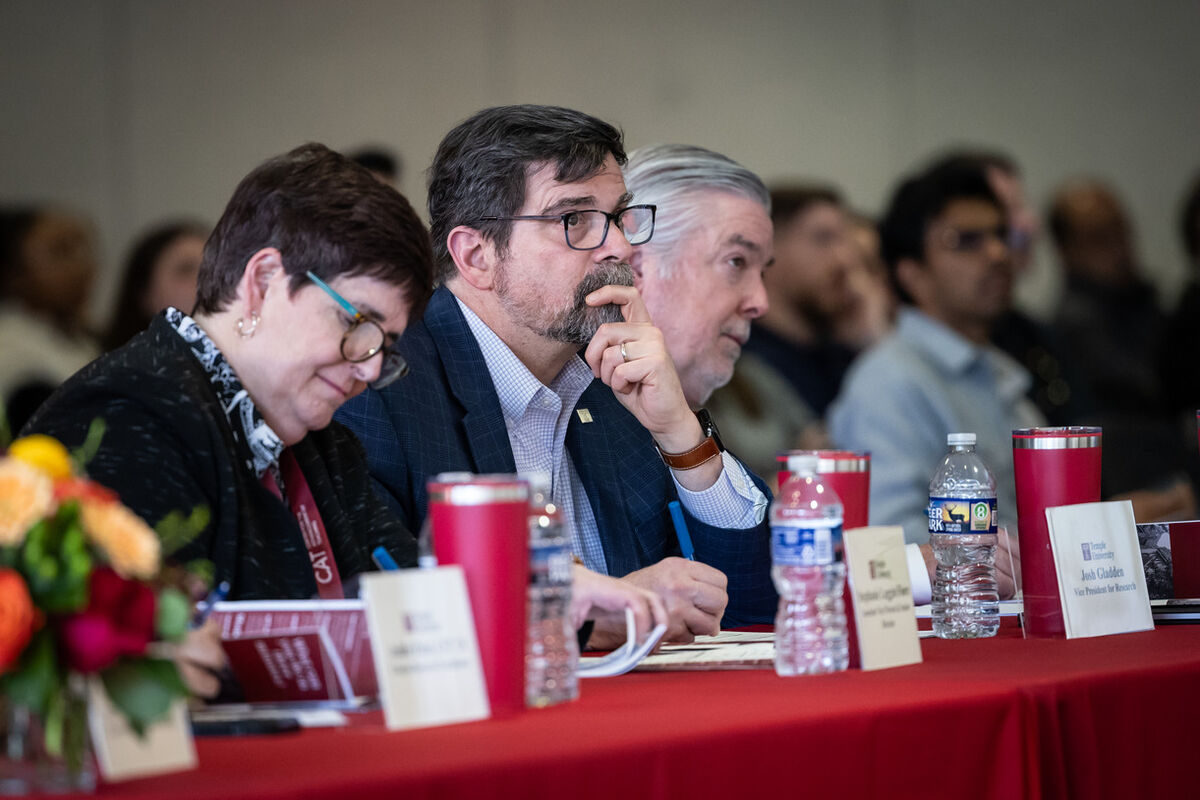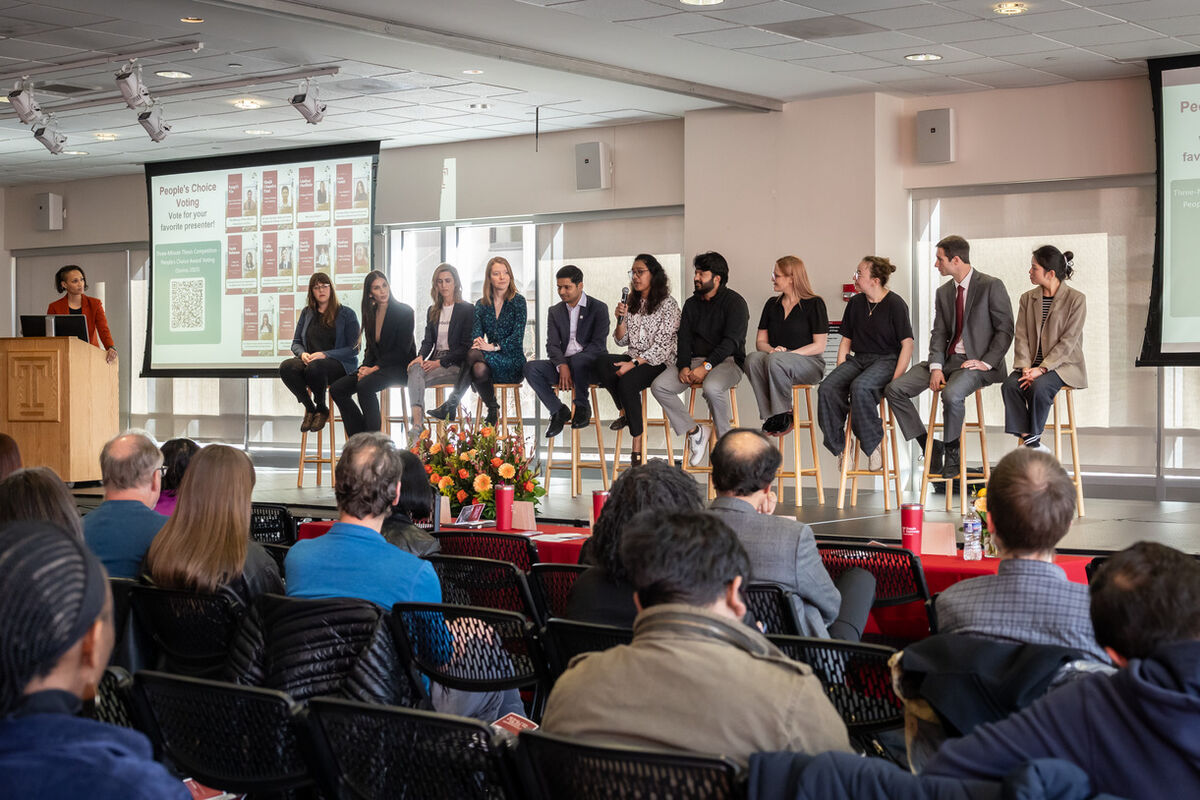Making neighborhoods safer and more livable
Fighting antibiotic-resistant bacteria
Eliminating deadly viruses
These are a few of the topics presented at the annual 3MT Competition hosted by The Temple University Graduate School on March 27.
3MT stands for three-minute thesis. The competition allows graduate students from across Temple’s schools and colleges to share an explanation of their doctoral research projects with a general, non-specialized audience using only one static slide—all in just three minutes. Participants compete for scholarship awards from the Graduate School.
“The event displays the breadth and depth of Temple’s graduate student research,” said Renée Tobin, dean of the Graduate School. “The work is inspiring and enlightening. I am always impressed by the creativity and resilience of our graduate researchers who are seeking solutions to real-world problems.”
Graduate students spend years refining their research and learning the specialized discourse of their specific disciplines, so it’s not surprising that the prospect of communicating the broader significance of their work to an audience who is unfamiliar with their area of focus could be challenging—even scary.
[node:sidebar_text]
The College of Engineering’s Subhrodeep Ray began his talk by painting a picture, “Imagine this: You’re chilling in your backyard in the afternoon and you hear this high-pitched repetitive sound disturbing your peace.”
“It’s the sound of pickleball,” he said.
Ray explained that current solutions either make the problem worse by deflecting the sound or are visually unappealing and create a security concern because they block the line of sight.
Through his research, Ray found a solution: a transparent, microperforated panel that mitigates the sound of the pickleball by absorbing it. His solution has been endorsed by USA pickleball.

Madison Shoraka, of the College of Science and Technology, introduced her project by presenting the problem: “In the 2019, the WHO estimated that 1.3 million people were killed globally by antibiotic resistant bacterial infections,” she said.
Then she described how she was able to apply mathematics to solving it.
Using image processing, Shoraka identified an algorithm that pinpoints how a particular bacteria evades a particular antibiotic by building a protective layer. Her mathematical models show that if a treatment can remove the protective barrier, the bacteria will again be susceptible to the antibiotic.
This year’s winning presentation, by the Katz School of Medicine’s Angela Rocchi, described using CRISPR gene editing technology to treat JSV, an insidious virus now on the rise due to the increased use of immunosuppressants.
“Humans are not the only beings with genomes,” Rocchi explained. “DNA is the foundational molecule of animals, bacteria, and even viruses. I hypothesized if we can eliminate a gene we can eliminate a virus. If we can eliminate a virus, we can eliminate its disease.”
Rocchi's talk will be submitted to the Northeastern Association of Graduate Schools' 3MT Competition.

In addition to helping graduate students hone their presentation skills and prepare for job market, the competition also offers an opportunity to build community among graduate students across Temple's many schools and colleges.
“While entrenched in my dissertation, I don't often have the opportunity to speak with people who I am not working closely with on the research,” said doctoral candidate in the College of Liberal Arts Lindsay Ouelette, who presented her project, Why Kick a Robot? “I am applying for jobs in industry so being able to talk about my work in a simple, clear way will be helpful.”
“Everyone involved was so nice and supportive,” she added. “Even though I did not win, I am grateful for the experience and had a lot of fun.”

